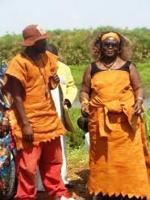Dar es Salaam University College of Education Tanzania
Here are the details about Dar es Salaam University College of Education Tanzania, Courses and Programmes offered at Dar es Salaam University College of Education,
Hostels and students accommodation facilities at this university, Admission and requirements to study at Dar es Salaam University College of Education and all you may need to know about Dar es Salaam University College of Educationin Tanzania.
BACKGROUND
Dar es Salaam University College of Education (DUCE) was established as a constituent college of the University of Dar es Salaam through the Government Notice No. 202 published on 22nd July 2005, under section 55 (1) of the University of Dar es Salaam Act No. 12 of 1970.
The college was established to address acute shortage of graduate teachers and experts in education sector in Tanzania as a result of the expansion of primary education enrollments through Primary Education Development Programme (PEDP) and the creation of the new secondary schools in turn through Secondary Education Development Programme (SEDP).
The college comprises three faculties: Faculty of humanities and social sciences (FoHSS), faculty of Science (FoSc) and Faculty of education(FoED).
MISSION AND VISION
VISION
To become a reputable higher learning institution that effectively gives high quality services with diligence.
MISSION
To provide integrated high quality teaching, research and consultancy services.
MOTTO
Quality Education for All.
CONTACT US
Principal
P.O.BOX 2329
Dar es Salaam
Tanzania
Tel number:
Fax number:
Email: principal@duce.ac.tz
Admissions
Entrance qualifications for degree programmes
“A candidate shall be deemed eligible for consideration for admission to an undergraduate degree programme of the University of Dar es Salaam if the candidate has obtained:
a) Certificate of Secondary Education Examination (C.S.E.E) or equivalent, with passes in FIVE approved subjects, THREE of which must be at credit level, obtained prior to sitting for the Advanced Certificate of Secondary Examination (A.C.S.E.E) or equivalent
And
b) Two principal level passes in appropriate subjects in the A.C.S.E.E or equivalent with total points from THREE subjects not below FIVE (for Arts programmes) and TWO (for Science based programmes) based on the following grade point conversion scale:
A= 5; B= 4; C= 3; D =2; E=1; S=0.5 Principal level passes in Divinity/ Islamic knowledge are not counted
Or
c) An appropriate equivalent Diploma of not less than Second class/Credit level or B average obtained from a college which is full registered by NACTE and approved by the UDSM Senate.
For Diplomas that are further classified into Upper and Lower Second classes, the requirement shall be an upper Second class or B+ average.
Other Universities and Colleges in Tanzania
Makumira University College Tanzania › | Mwenge University College of Education Tanzania › | Mzumbe University Tanzania › | St. Johns University of Tanzania › | Sokoine University of Agriculture › | University of Dar es Salaam › | University of Arusha Tanzania › | Zanzibar University Tanzania › | Tumaini University Dar es Salaam › | State University of Zanzibar Tanzania › | Stefano Moshi University College Tanzania › | Kabianga University College › |Recent Articles
-
Garam Masala Appetizers ,How to Make Garam Masala,Kenya Cuisines
Sep 21, 14 03:38 PM
Garam Masala Appetizers are originally Indian food but of recent, many Kenyans use it. Therefore, on this site, we will guide you on how to make it easily. -
The Details of the Baruuli-Banyara People and their Culture in Uganda
Sep 03, 14 12:32 AM
The Baruuli-Banyala are a people of Central Uganda who generally live near the Nile River-Lake Kyoga basin. -
Guide to Nubi People and their Culture in Kenya and Uganda
Sep 03, 14 12:24 AM
The Nubians consist of seven non-Arab Muslim tribes which originated in the Nubia region, an area between Aswan in southern







New! Comments
Have your say about what you just read! Leave me a comment in the box below.